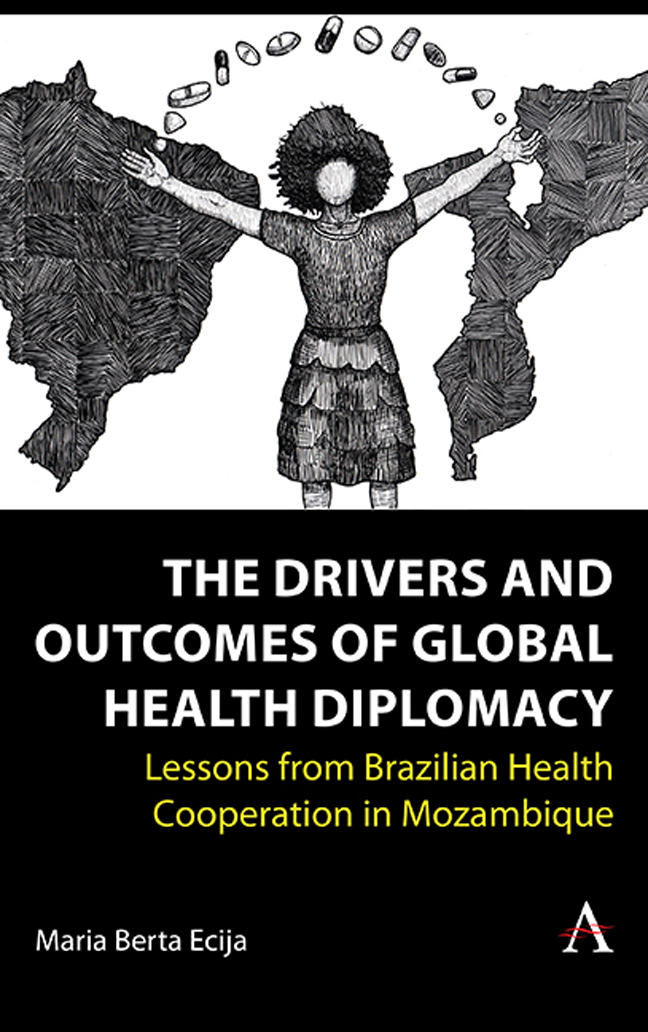 The Drivers and Outcomes of Global Health Diplomacy
The Drivers and Outcomes of Global Health Diplomacy Published online by Cambridge University Press: 29 February 2024
FRELIMO and Foreign Policy Orientation
FRELIMO and foreign policy orientation: Pre-independence, cold war and civil war
Pre-independence period
Mozambique’s first foreign partnerships were mainly with neighbouring countries that shared the same ideologies and objectives at the time, which were independence and autonomy within Africa. Therefore, at the core of foreign policy among these countries, there was a strong commitment to fighting for common causes and ideals, and a recognition of the importance that international relations would play in achieving that goal. FRELIMO’s main connection started when Eduardo Mondlane was working at the UN. Within that network, a partnership was built early on with Tanzania, which was already committed to the National Liberation Movement and the African Unit. Other relevant partnerships for national independence and regional unity were established with Zambia, Egypt, Ghana, Guinea and Somalia.
These alliances were seen as key strategies because the countries involved were also committed to liberation movements. Therefore, there was not only an ideological connection between these actors, but also, they could provide assistance in the areas of military training, as well as transference of weapons and means for the liberation movement (Schneidman, 1978, p. 58). However, objectives could not be reached just by aligning with African countries that were facing similar challenges; it was essential to build partnerships in a broader context, mostly due to the Cold War.
Therefore, Schneidman (1978) considers that the apex of FRELIMO’s foreign policy was reached in gaining support from China and the Soviet Union – the Soviet bloc – at the time. China and the USSR provided cash aid, military support, guerrilla training and transportation. However, the USSR also provided political and diplomatic endorsement for the liberation movement in Mozambique. Moreover, the USSR was the only member of the UNSC that supported the African-Asian bloc in condemning Portuguese colonial rule. Other Eastern European countries such as Bulgaria, Czechoslovakia and East Germany also provided some aid to FRELIMO in terms of military training, and also in the fields of education and health. In 1966, Sweden offered support to FRELIMO by providing medical facilities and supplies to the population.
The historical recapitulation presented above highlights Mozambique’s profile as an international receptor of international aid, which will be contested within the field of health in Chapter 6. Mozambique has relied on international aid in its different forms and from within various sectors since before its independence.
To save this book to your Kindle, first ensure [email protected] is added to your Approved Personal Document E-mail List under your Personal Document Settings on the Manage Your Content and Devices page of your Amazon account. Then enter the ‘name’ part of your Kindle email address below. Find out more about saving to your Kindle.
Note you can select to save to either the @free.kindle.com or @kindle.com variations. ‘@free.kindle.com’ emails are free but can only be saved to your device when it is connected to wi-fi. ‘@kindle.com’ emails can be delivered even when you are not connected to wi-fi, but note that service fees apply.
Find out more about the Kindle Personal Document Service.
To save content items to your account, please confirm that you agree to abide by our usage policies. If this is the first time you use this feature, you will be asked to authorise Cambridge Core to connect with your account. Find out more about saving content to Dropbox.
To save content items to your account, please confirm that you agree to abide by our usage policies. If this is the first time you use this feature, you will be asked to authorise Cambridge Core to connect with your account. Find out more about saving content to Google Drive.